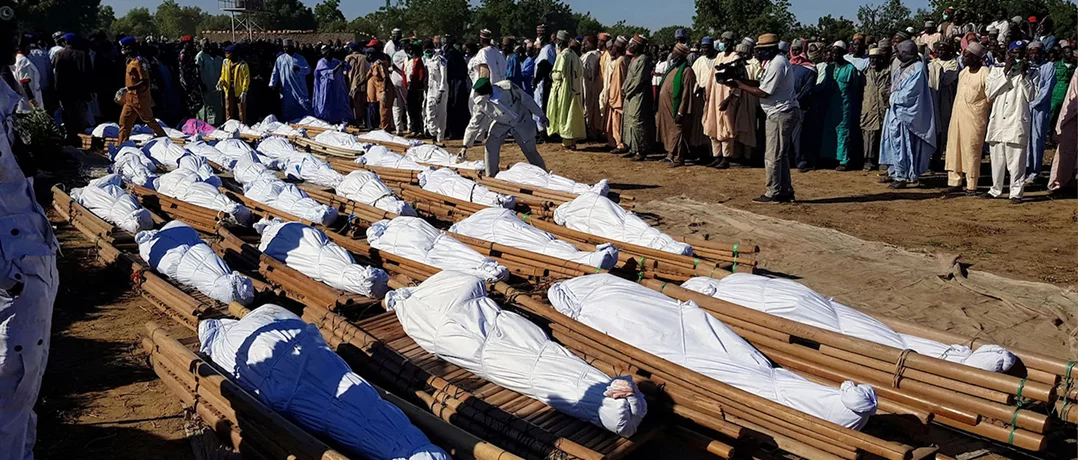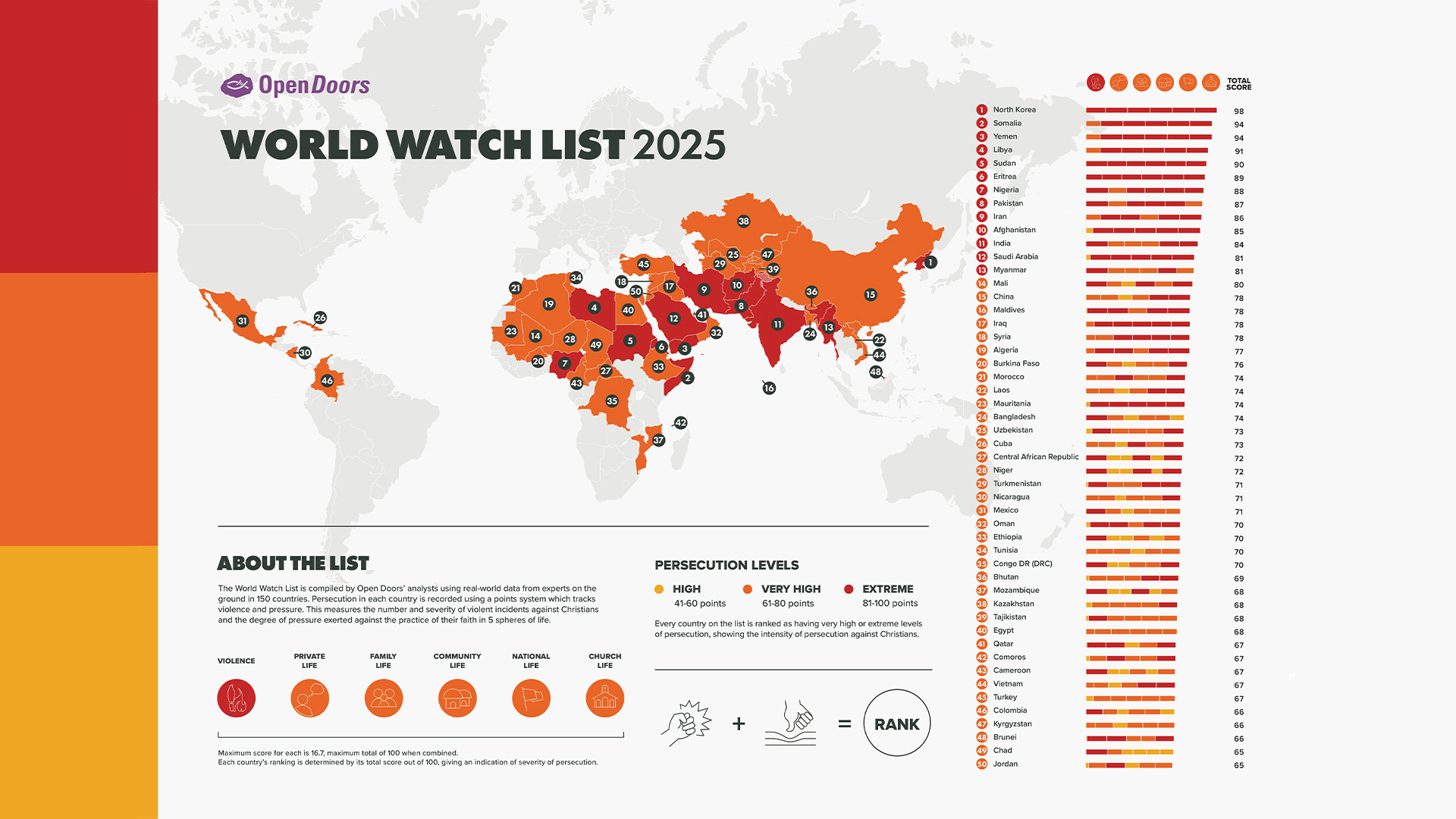Trump’s move to relist Nigeria as a “Country of Particular Concern” reignites global outrage over what many call a silent genocide against Christians.
Nigeria’s silent genocide
Nigeria’s silent genocide


In a sharp reversal of U.S. policy, Donald Trump has officially redesignated Nigeria as a “Country of Particular Concern” (CPC) for severe violations of religious freedom reversing the Biden administration’s 2021 decision to remove the label.
Trump’s announcement on October 31, 2025 marks the first time since his presidency that Washington has publicly accused Abuja of turning a blind eye to the “systematic persecution of Christians.” Speaking at a press briefing, he warned that U.S. aid could be cut and sanctions imposed if the Nigerian government continues to “allow the slaughter of Christians.”
Under President Joe Biden, Nigeria had been quietly delisted in late 2021, a move widely condemned by human rights advocates who argued it gave Abuja diplomatic cover while violence escalated. Trump’s reinstatement has reignited global attention on what many call “Nigeria’s silent genocide”, a years-long campaign of terror that has left more than 52,000 Christians dead, 20,000 churches destroyed, and millions displaced since 2009.
From Land Disputes to Religious War
The conflict in Nigeria's Middle Belt began as disputes over land and water between predominantly Muslim Fulani herders and predominantly Christian farmers. Over time, these tensions have been exacerbated by factors such as climate change, population pressures, and ethnic and religious divisions. The competition for diminishing resources has intensified hostilities, leading to violent confrontations between the two groups.
In recent years, armed Fulani militias have become increasingly active, employing military-grade weapons to launch coordinated attacks on villages. These assaults often occur at night, with perpetrators setting fire to homes, killing men, and abducting women and children. Survivors report that attackers shout religious slogans during these raids, targeting churches first before moving house to house. For instance, in May 2025, coordinated assaults in Plateau State resulted in the deaths of mostly children and the elderly, and the deliberate destruction of over 740 acres of farmland in Kpachudu village.
The situation is further complicated by the presence of Islamist terror groups such as Boko Haram and the Islamic State West Africa Province (ISWAP). These groups have declared their mission to establish an Islamic state and have intensified their attacks on Christian communities.
Despite the scale of the violence, the Nigerian government's response has been criticized as inadequate. In some cases, the military has been accused of standing down during attacks, and few perpetrators have been prosecuted. This lack of accountability has led to allegations of complicity and has emboldened the attackers.
International observers, including religious freedom advocates like Nina Shea from the Hudson Institute, have condemned the situation. She has testified before the U.S. Congress, urging the designation of Nigeria as a "Country of Particular Concern" due to the severe persecution of Christian communities.
The Numbers Behind the Horror
Shea’s data paint a chilling picture:
52,000 Christians killed since 2009
Over 20,000 churches destroyed or attacked
More than 2 million displaced
7,000 Christians killed in 2025 alone, according to U.S. congressional letters
Senator Ted Cruz and Representative Riley Moore have cited these figures in their push for Washington to redesignate Nigeria as a Country of Particular Concern (CPC), a move that could trigger U.S. sanctions. “Nigeria has become the world’s epicenter of anti-Christian violence,” Cruz said. “If this isn’t genocide, what is?”
Historical Roots: Faith, Power, and the Fulani Expansion
Nigeria’s religious divide runs deep. The north, largely Muslim and historically ruled by Fulani emirs under the Sokoto Caliphate, collided with British colonial structures that favored Christian education and southern governance. After independence in 1960, these fault lines widened.
The Fulani herders’ migration southward, driven by desertification, brought them into conflict with mostly Christian farming communities in the Middle Belt, Benue, Plateau, and Kaduna states.
But what was once a resource dispute is now marked by ideology. Analysts say radical Islamist influence, from Boko Haram to Al-Qaeda affiliates, transformed economic tension into religious war.
“Killings now follow a chilling pattern: churches targeted on Sundays, pastors executed, villages attacked during prayer,” says one Nigerian priest from Plateau State.
It’s coordinated. It’s meant to send a message: Christians have no place here.
Government Silence and Impunity
Despite the scale of the bloodshed, Abuja’s response has been weak. The Nigerian army is accused of standing down during attacks, and few perpetrators have ever been prosecuted. Survivors speak of collusion and cover-ups.
Critics argue that successive Nigerian governments, under both Christian and Muslim presidents, have failed to confront the Fulani militias due to political ties and fears of alienating northern constituencies.
“This is persecution by tolerance,” Shea writes. “When governments allow atrocities to continue unchecked, they become complicit.”
Now, lawmakers are pushing to reverse that. “We cannot ignore a genocide in progress,” Riley Moore said in his letter to Secretary of State Marco Rubio. “The Nigerian government has failed to protect its Christian citizens.”
Nigeria’s Foreign Minister Yusuf Tuggar, however, rejects the label. “This is not a religious war,” he insists.
It’s a complex security crisis affecting all Nigerians, regardless of faith.
But Christian communities see the pattern clearly: churches burned, pastors executed, villages erased, while mosques remain untouched.
A Global Pattern: The Other Frontlines of Christian Persecution
Nigeria is the deadliest, but not the only place where Christians face extermination-level violence. Communities worldwide face extreme violence, discrimination, and systemic persecution:
Ethiopia: Christians, especially in Oromia, face escalating ethnic and religious violence. In 2023, at least 70 Christians were killed, hundreds of churches destroyed, and over 15,000 displaced. Non-traditional Christians, including converts from Islam, face attacks and social ostracism.
Egypt: The Coptic Orthodox minority continues to experience harassment, mob violence, and forced displacement. In 2023, at least five Christians were killed, and more than 20 attacks targeted Christian homes and churches, often linked to disputes over church construction.
Pakistan: Christians, just 1.8% of the population, are disproportionately targeted by blasphemy laws. Around 25% of all blasphemy accusations target Christians. In June 2024, an elderly Christian man was killed by a mob over alleged Quran desecration. Extremist attacks on Christian settlements, like Jaranwala in 2023, destroyed homes and churches.
India: Violence against Christians has surged, particularly in Manipur and among the Kuki tribe. In 2023, at least 160 Christians were killed, with hundreds of churches destroyed. In 2024, there were 834 reported incidents including assaults, vandalism, and wrongful arrests under anti-conversion laws.
North Korea: The most repressive country for Christians, with an estimated 50,000–70,000 imprisoned for practicing their faith. Religious activities are criminalized and punished by imprisonment, torture, or execution.
Iraq: Decades of conflict have reduced the Christian population from 1.5 million pre-2003 to an estimated 150,000–250,000 today. Attacks continue, including an April 2025 axe attack during an Assyrian Christian parade in Dohuk.
Syria: Once home to 1.5 million Christians, fewer than 400,000 remain, concentrated in Damascus, Aleppo, Homs, Hama, Latakia, and Hasaka. In June 2025, a suicide bombing at Saint Elias Church killed 25 people, and sectarian violence continues in southern regions.
Cameroon: Christian communities, especially in anglophone regions, face attacks from separatists and Islamist insurgents. Churches are burned, priests kidnapped, and families displaced.
Sudan: Christians are frequently targeted. Recent reports indicate 44 killed, 100 sexually assaulted, and 100 homes or businesses attacked.
Eritrea: Evangelical and Pentecostal Christians face severe repression. Many are imprisoned for worshipping outside government-approved denominations, and unregistered religious groups are banned.
Measuring Persecution: Open Doors World Watch List
Open Doors annually ranks the 50 countries where Christians face the worst persecution, scoring nations from 0 to 100 based on government restrictions, social hostility, violence, and legal discrimination.
 World Watch List 2025 Map
World Watch List 2025 Map
As Congress debates sanctions and diplomats argue definitions, the killings continue, village by village, Sunday by Sunday. “The world cried for Ukraine, for Gaza, for Sudan,” says one bishop in Kaduna. “But for Nigeria’s Christians, nothing. We are dying quietly.”
With Nigeria once again under the global microscope, Washington faces a defining test: whether designations and sanctions can translate into real pressure, or whether another genocide will unfold under the watch of a world too cautious to intervene.


